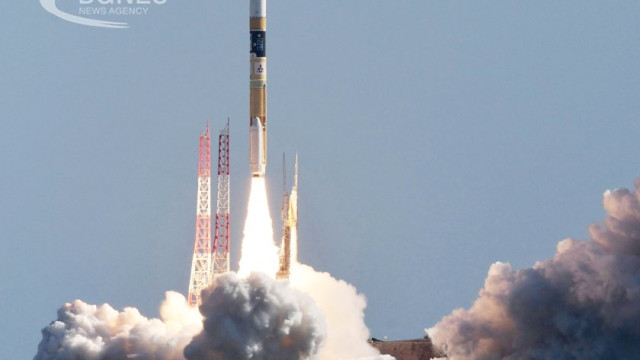Japan's SLIM space probe has entered lunar orbit, an important step toward the first successful lunar landing expected next month, AFP reported.
The Smart Lander for Investigating Moon (SLIM) is called the "Moon Sniper" because it is designed to land within 100 meters of a specific target on the lunar surface.
If the landing is successful, Japan will become only the fifth country to successfully land a probe on the moon, after the United States, Russia, China and India.
SLIM "successfully entered lunar orbit at 16:51 Japan time" (07:51 GMT), the Japan Aerospace Exploration Agency (JAXA) said in a statement released Monday evening.
"Its trajectory change was achieved as originally planned and there is nothing unusual about the probe's conditions," the agency said.
The rover's descent to the moon is expected to begin around 12:00 a.m. Japan time on Jan. 20, with its landing on the surface scheduled for 20 minutes later, JAXA said.
The H-IIA rocket lifted off in September from the southern island of Tanegashima, carrying the descent module, after three weather-related delays.
JAXA said this month that the mission would be an "unprecedented precision landing" on the moon.
The lander is equipped with a spherical probe developed in conjunction with a toy company.
Slightly larger than a tennis ball, it can change shape to move around the lunar surface.
Compared to previous probes that landed "several or more than 10 kilometers" from targets, SLIM's estimated margin of error of less than 100 meters represents a level of accuracy once thought impossible, thanks to the culmination of 20- researchers' annual effort, according to JAXA.
As technology advances, the demand for precise targets such as craters and rocks on the lunar surface is increasing, Shinichiro Sakai, JAXA's SLIM project manager, told reporters this month.
"Gone are the days when you just wanted to explore 'somewhere on the moon,'" he said.
The hope is also that SLIM's accuracy will make it easier to sample lunar permafrost, bringing scientists closer to unraveling the mystery surrounding the moon's water resources, Sakai added.
Japanese missions have failed twice - one public and one private.
Last year, the country unsuccessfully sent a lunar probe called Omotenashi as part of the United States' Artemis 1 mission.
In April, Japanese startup ispace tried in vain to become the first private company to land on the moon, losing contact with its craft after what it described as a "hard landing." /BGNES







